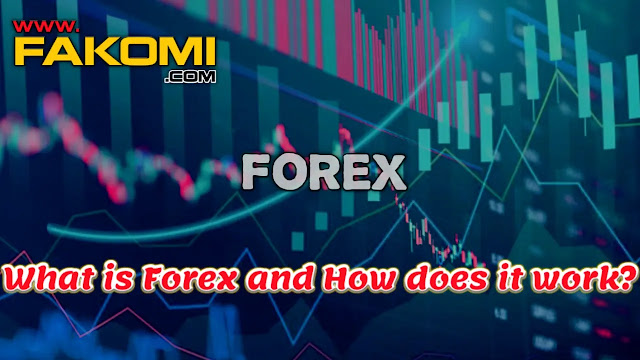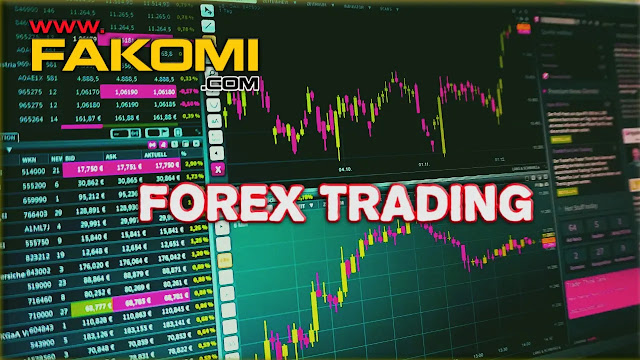What is forex? Forex, or foreign exchange, refers to the currency trading that goes on between countries around the world. If you are an investor interested in entering this realm of finance, learn more about how forex works, why it’s such a lucrative industry and what you need to do to get started with your own forex account today!
What is Forex?
The foreign exchange market, also known as the forex market, is where currency trading takes place. Currencies are bought and sold in pairs, with each currency being traded against another. For example, the EUR/USD pair means you are buying Euros and selling US dollars. The aim of forex trading is to speculate on the movement of currency pairs, making money off of the difference in the exchange rate.
The History of Currency
Before we get into what forex trading is, let's take a step back and look at the history of currency. For centuries, people have used different forms of currency to buy and sell goods. From gold and silver to more recent forms of currency like fiat money, people have always needed a way to trade. The advent of currency led to the creation of banks and banking systems. As time went on, our economies became more complex and so did the process of exchanging currencies around the world.
Global Currencies
When you hear about Forex, you're usually hearing about the global currency exchange. That's because forex online is all about trading different global currencies against each other. The most popular forex trading pairs are EUR/USD, USD/JPY, and GBP/USD. In order to trade forex, you need a broker that offers forex trading services. You will also need an account with this broker in order to be able to make trades. A key difference between regular stock trading is that when you buy shares of stock in a company, the shares stay with the company and don't move anywhere else (unless they get sold). However, when you buy a foreign currency on forex markets, your money moves into their country!
Foreign Exchange Market (Forex)
The foreign exchange market, also known as the forex market, is where currency trading takes place. Currencies are bought and sold in pairs, with each currency being traded against another. For example, the EUR/USD pair means you are buying Euros and selling US dollars. The aim of forex trading is to speculate on the movement of currency pairs, making money off of the difference in the exchange rate.
Making Money from Trading
When you trade forex online, you're essentially betting on the value of one currency against another. If the currency you've bought increases in value against the currency you've sold, you make money. It's as simple as that. You can trade forex online 24 hours a day, and trade 5 days a week. There are also some limitations to what you can do when trading: for example, some brokers limit your maximum risk per trade to 20% of your account balance.
One more thing worth mentioning about trading forex is leverage: this allows traders to enter trades with much smaller amounts than they would otherwise need to use (since they are borrowing other people's money). With these two combined - small initial outlay, high returns - trading forex is an attractive prospect for those who want to make a lot of money quickly.
Research Tools for Traders
When you're ready to start trading forex, it's important to have the right tools at your disposal. A good broker will offer a robust trading platform, competitive fees, and quality customer service. You'll also need to do your own research to find the best opportunities. The following resources can help you get started:
- DailyFX: this website provides comprehensive analysis on market sentiment, currencies, commodities, equity indices and global markets. They offer free videos on technical analysis for beginners and short webinars with seasoned traders that show live trades in real time.
- Investopedia: this site offers educational articles on technical analysis that are designed for both beginners and advanced traders alike. Their online tutorials provide guidance on things like setting up an account or day trading.
- Foreign Exchange Market 101: this page from the Federal Reserve Bank of New York covers basics such as what currency pairs trade against each other, how to interpret forex charts, major currency movements over the past year and more.
- Forex Quotes: quotes from 24 different banks around the world updated every 30 seconds on one screen. These quotes give you a sense of where the price may be headed based on current trends.
- Trading Economics: when it comes to economic data, this site aggregates forecasts and statistics from 6,000+ sources all in one place so you don't have to go hunting through websites yourself. All of their data is presented clearly in graphs so it's easy to see any changes over time.
- Economic Calendar: never miss an opportunity again! Access reliable data about upcoming economic events and keep track of expected performance indicators before they happen.
- Live Rates: not only does this site provide fast rates, but you can set alerts for specific currencies so that when the rate reaches a certain level, you'll know about it.
- Trading View: another great tool for keeping tabs on market activity. Get access to historical price and volume information as well as learn about popular trading strategies from professionals across the globe who post insightful commentaries there daily.
What are some top forex tips to consider?
- Always use stop losses and exit positions so that you limit risk exposure while maximizing potential gains. Remember, too much risk can wipe out profits quickly if you're wrong.
- Try to stay patient with your trades-you may lose money if you panic and make hasty decisions without taking time to assess the situation.
Ways to Learn About the Industry
- The first step is to learn the basics. What is forex, and how does it work? You can find this information online, in books, or through a course.
- Once you understand the basics, you need to get more specific information about the industry. Try reading blogs or articles written by experts in the field. This will help you get a feel for how the industry works and what factors influence currency prices.
- Another great way to learn about forex is to join an online community of traders. Here you can ask questions, get advice, and share your own experiences with other traders.
- If you want a more hands-on approach, consider opening a demo account with a broker. There are many options available so be sure to do some research beforehand to find one that fits your needs.
- When selecting a broker, make sure they offer plenty of educational resources and have low trading fees (usually around $10 per trade).
- Learning as much as possible about forex before investing is crucial because there are risks involved in trading currencies which vary from country to country. It's important to do your research and learn about different brokers' policies before committing any money.
You can also watch tutorials on YouTube which are very informative for beginners and serve as a great refresher if you've been trading for awhile.
Join forums or attend workshops where people who know a lot about forex talk about their successes and failures within the market. These events provide invaluable insight into navigating this complex world and getting started on the right foot!
Some Basic Tips for Beginning Traders
The foreign exchange market, also known as forex or FX, is the world’s largest decentralized market. This market determines the foreign exchange rate. It includes all aspects of buying, selling, and exchanging currencies at current or determined prices. In terms of trading volume, it is by far the largest market in the world. It dwarfs stocks, bonds, futures and commodities in trading volumes. For instance, one trillion dollars worth of currency changes hands on a typical day (or three trillion dollars per week). Every day more than $3 trillion worth of transactions take place on this market. That’s around 12 million transactions per second!
Forex traders come from all over the world to participate in this market. Millions of transactions are made every hour, with billions changing hands every day. At any given time during the course of a year, more than $5 trillion worth of currency changes hands across different borders.


